Speak to Oreem



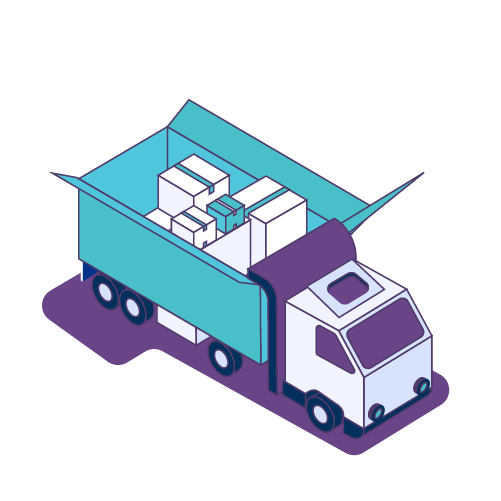
Delivery Company
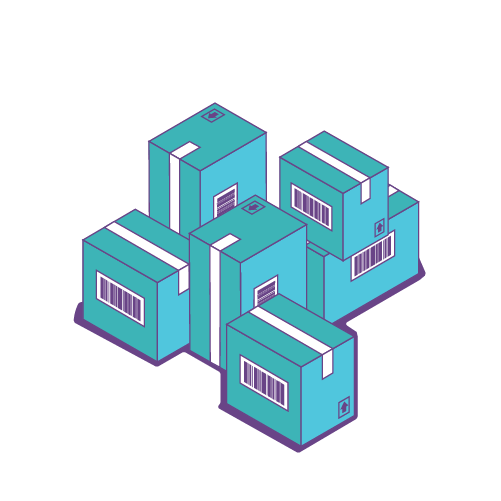
Parcel
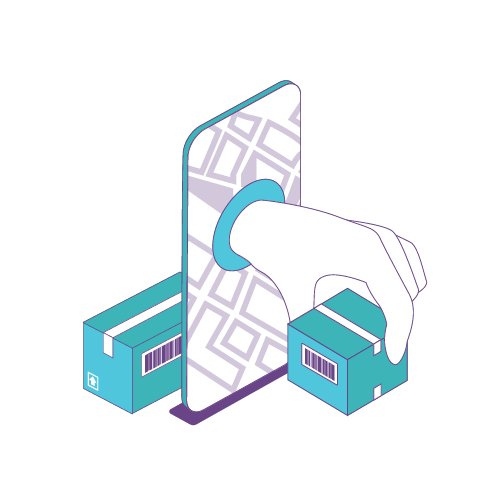
Delivery Company
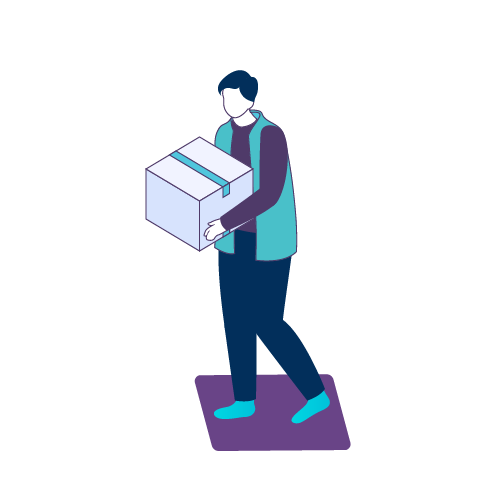
Courier

Tracking
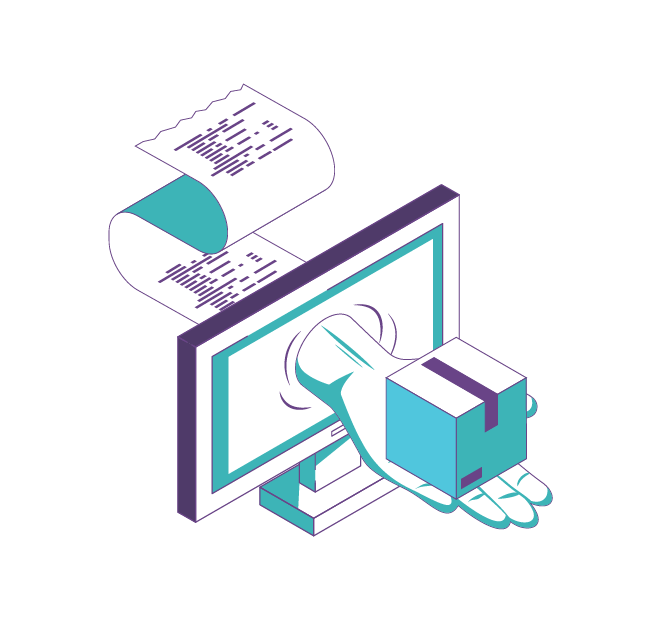
Get Your Parcel Deliver!
We provide the fastest courier delivery service & parcel delivery in Bahrain and all over the world.

What is logistics?
The process of planning or coordinating, relocating goods, materials, equipment, and people from specific area to storage at the desired destination is known as logistics. The aim of logistics is meeting the needs of the customer as quickly and cost-effectively.
The origin of the term is from the military, it was used to refer to the transport of equipment and supplies to troops in the field. Although logistics is as crucial as it ever was for the army, the word nowadays is used more for moving commercial products in the supply chain.
logistics vs. supply chain management
Supply chain management and logistics are two terms commonly used interchangeably; however, they are actually referring to two different aspects to the same process.
Logistics refers to the activities that take place within a single company, such as the purchasing and distribution of raw material, packaging, delivery and transportation of products to retailers for instance. Supply chain management is a reference to a larger group of external organizations working together to supply goods to customers, such as suppliers, transportation companies warehouse suppliers, call centers and other.

Logistics types

Inbound Logistics
Inbound logistics is basically transportation, storage and receipt of incoming resources (such raw material, other goods, etc.) required to make a product.
It can also be the delivery of goods you have in your inventory.
If your business deals in footwear, for example, inbound logistics will include the rubber for the shoes and the yarn to make the shoes.
Inbound logistics is dominated by procurement. It involves sourcing and transporting raw material from the supplier to the buyer’s facility. It may involves managing suppliers, costs and inventory to ensure that the correct components are delivered to your factory in schedule because hundreds of parts are being brought in to make one final product.
Outbound Logistics
Outbound logistics is the delivery of the right product to the right customer at the best price. It is focused on customer satisfaction.
If your business deals in footwear, the outbound logistics for your company will include the shipment of the final product, which could be sandals, shoes, or slippers to your customers.
The main goal here is customer satisfaction. The logisticians ensure that the product reaches the customer as safely and cost-effectively as possible.
Outbound logistics is a complex process that requires a strong distribution system. Distribution channels and the transportation system must support the company’s value proposition to customers (e.g., Quick response to customers, high quality customer service, etc. E-commerce is a growing trend in retail. This makes it more important to optimize outbound logistics flows. Outbound logistics is a key focus for the retail e-commerce industry. This sector is more important than any other. Amazon, Walmart, Lazada are examples of companies that take bold steps to innovate technologies and build facilities to improve their logistics performance.


Reverse Logistics
Reverse logistics refers to the movement of products from the end-user back towards the origin in order to recover value or dispose properly. This includes collection, inspection, sorting and refurbishing of product..
It is likely that you have experienced it at least once: You order a product online, and it does not meet your needs. You can then request a refund of the product. This is demonstrated by a refurbished a mobile phone, the customer can return the phone that is defective during the warranty period to the carrier network, and then to manufacturing company for refurbishment. The company inspects the Phone and then replaces it with the correct parts or software. The new phone is labeled with a serial number or model number to allow for reselling. The customer then resells the refurbished phone, creating additional value for the company.
what is logistic management?
Transport and warehouses are two of the main logistical functions.
Logistics management involves organizing, optimizing, and managing the transportation of products between stores and customers. It includes multimodal transport via air, rail, road, and sea, and focuses on route planning, load management, freight auditing, payments, and yard management.
Warehouse management involves inventory management and fulfillment, utilizing Warehouse Management Systems (WMS) to track the movement and storage of goods. Transportation Management Systems (TMS) are used for managing transportation needs.
Customs management is part of logistics, dealing with the documentation required for compliance with government regulations when products cross borders.
Artificial Intelligence (AI) and autonomous vehicles will play a significant role in logistics, helping track packages and solve transportation issues, with driverless trucks, forklifts, and drones expected to become more common in warehouses and on roads.

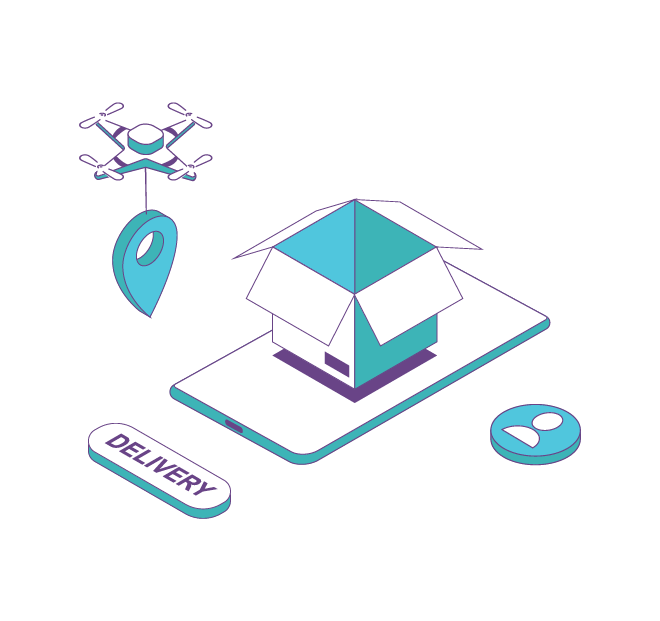
Logistics components.
The management of logistics can involve some or all of the following business functions, including:
Why logistics is Important?
The timely delivery of packages that are intact has always been crucial across the supply chain and while many small-scale businesses concentrate on the development and production of their services and products to meet the needs of their customers but if the products aren’t able to be marketed to customers, then the business is likely to be in danger of failing. This is the primary role logistics is playing.
However, logistics can also impact other aspects of business, too.
The more quickly raw materials can be bought or transported and then stored until needed the more profitable a business will be. The coordination of resources that allows for the timely delivery and use of raw materials can be the difference between a successful or unsuccessful business.
On the other hand, on the side of the customer when products can’t be manufactured and delivered on time and customers are not satisfied, it can affect their satisfaction and negatively impact the profitability of a business and its the long-term viability.
Distributors, suppliers, manufacturers and retailers have had to enhance their logistics processes in order to accommodate the growing demand for speedier and more convenient delivery of a wider range of products. They have also had to improve the integration of their processes and systems in order to enhance visibility into the supply chain.
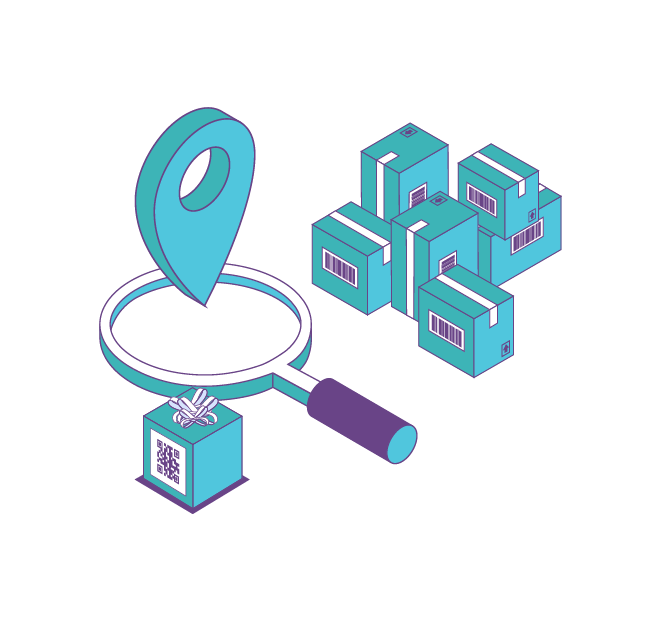
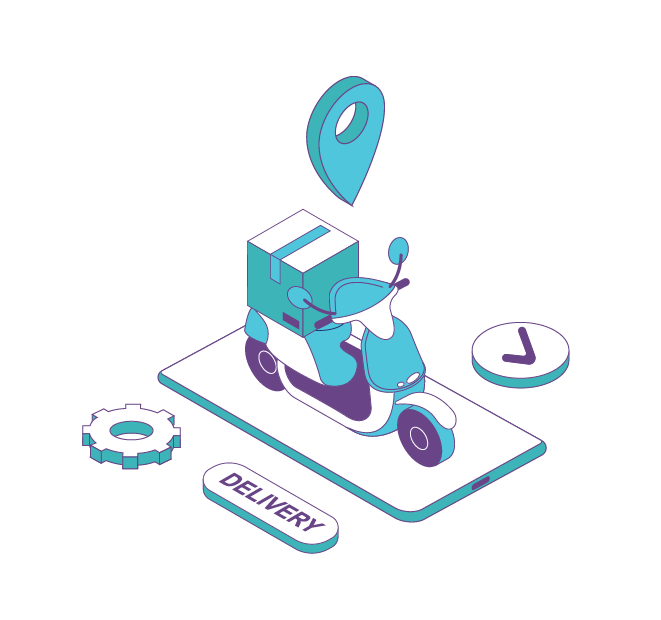
The difference between supply chain and logistics management
Logistics management is an essential aspect of the supply chain management (SCM). While the two terms are frequently used interchangeably, logistics is focused on moving materials and goods as efficiently as is possible. However, (SCM) encompasses a much larger variety of planning for supply chains (SCP) actions including demand planning, the planning of sales and operations (S&OP) and the execution of supply chains (SCE) that includes strategic logistics and sourcing.
Sometimes the terms inbound or outbound logistics are used to describe the logistics involved in bringing goods into or departing from a facility and vice versa. Another important class can be reverse logistics. which refers to the process of logistics required to deliver a product back for servicing or refurbishing, as well as decommissioning or recycling.
Speak to Oreem
Have questions?
Get answers.
I need help with my package
Where’s my package?
You can track your package easily through the WhatsApp message you received from Oreem.
If you haven’t received a tracking link yet, it means your shipment is still being prepared by the merchant. Once it’s ready for dispatch, you’ll automatically receive a WhatsApp notification with real-time tracking updates.
How can I cancel my shipment?
To cancel your shipment, please send an email to support@oreem.com
with your order reference number and the reason for cancellation, so our Bahrain support team can process your request quickly.
How can I update my address?
You can update your address on the tracking link we’ve sent you through the WhatsApp message you received.
I have some feedback!
We’d love to hear your feedback, whether it’s good or bad. It helps us improve big time. Please drop us an email at support@oreem.com
overview
What is Oreem?
Oreem is an e-commerce enabler that can help you create a seamless post-purchase experience for your customers with safe & secure fulfillment and super-fast last-mile delivery options
How does it work?
Register to one of the Oreem subscription plans, plug in an order and let Oreem fulfill & deliver or just deliver your products to your customers across the Bahrain and the world.
How do I know if Oreem is right for me?
If you’re a business owner that wants to create a better post-purchase experience for your customers with easy integration to your shopfront, warehousing & fulfillment, fast delivery and a headache-free experience, then Oreem is right for you.
How do I sign up to Oreem?
Click here to check out the different plans we have, subscribe and start your journey in a few minutes.
delivery
What delivery options do you offer?
With Oreem, you can reach the whole world. We offer same day, next day, and 2–4 hour delivery options within Manama and other major areas in Bahrain. We also offer express international delivery to anywhere in the world.
What types of vehicles does the Oreem fleet use?
Our fleet includes motorbikes, cars, and vans. Motorbikes reach destinations quickly, cars are ideal for temperature-sensitive items, and vans are used for bulkier packages. For international shipments, we only ship by air.
What are the delivery fees?
Our pricing is transparent, and we offer subscription plans suitable for all types of businesses. You can check the available plans here.
Does Oreem provide payment on delivery (COD)?
Yes. Oreem accepts various payment methods including cash or card on delivery, as well as payment links. All contactless payment options are accepted, including Apple Pay, Google Pay, and Samsung Pay.
What are the charges for payment on delivery (COD)?
Payment on delivery is charged at 2.8%–2.9% of the total transaction amount depending on the plan you choose. For example, if Oreem collects BHD 10 on your behalf, a fee of BHD 0.28 will be deducted before transferring the remaining balance to you.
What regions/areas does Oreem cover?
We currently cover all governorates in Bahrain, including Manama, Muharraq, Riffa, Isa Town, Hamad Town, Saar, Budaiya, Sitra, Hidd, and Amwaj Islands. There are a few remote areas we don’t cover yet check these here.
International coverage
Oreem ships from Bahrain to destinations around the world through express air delivery. Our international network ensures fast, reliable, and secure global shipping.
How can my customers track their shipment?
All customers receive a WhatsApp message with a tracking link where they can view live updates, update their address, make payments, or set delivery preferences.
Do you manage returns?
Yes. Returns are simple and can be requested in just a few clicks. Once a return is created, your customer will receive a notification with full details.
How are returns charged?
Returns are charged the same as deliveries — no extra fees apply. For example, if your delivery rate is BHD 1.5, the return will also cost BHD 1.5.
How can I contact customer support?
You can reach our support team through the chat box on your Oreem dashboard or through WhatsApp integration.
Are there any areas Oreem does not cover in Bahrain?
Yes, a few remote or restricted areas may not be serviceable. You can check the list here.
Is there a weight limit for my packages?
Our standard pricing applies to packages up to 5 kg and 20x20x20 cm in size. Additional charges apply for heavier or larger packages.
Can Oreem help me ship internationally?
Yes, you can ship anywhere in the world with Oreem. Placing international orders is as easy as local deliveries.
Does my customer have to be present for delivery? What if they are not home?
If it’s a prepaid order and the goods are not perishable, the customer can request the courier to leave it outside their door. If it’s a COD order, the customer can pay online via the Oreem tracking page before requesting the same option. Otherwise, we’ll arrange a convenient time for delivery.
Are there any prohibited items that Oreem can’t deliver?
All items prohibited under Bahrain law, hazardous materials, and products that your business is not licensed to sell.
What happens if my customer is not available when the courier arrives?
Our couriers will attempt delivery up to three times if needed. If the customer is unavailable or refuses the shipment, it will be safely returned to you.
fulfillment
How does fulfillment with Oreem work?
Super easy! You’ll integrate your shopfront (Shopify, WooCommerce, Magento) with Oreem. We will store your inventory in our Bahrain warehouse, and once you get an order, we’ll pick, pack, and ship it to your customer anywhere in Bahrain or internationally.
Why should I choose fulfillment with Oreem?
Imagine getting new order requests and not having to worry about a thing. You’ll just need to focus on getting more orders in while Oreem takes care of the storage, packing, and delivery.
Do you provide packaging?
Yes, we provide standard polybag packaging for fulfillment. If you need us to use your own custom packaging, we are happy to accommodate.
How quickly can you fulfill orders?
Any orders placed before 12 pm are delivered on the same day across Bahrain. Any shipments received after that are delivered the very next day. International orders work the same way, but delivery time varies between 3–5 days.
What temperature-controlled storage options does your warehouse provide?
Our warehouse in Bahrain is fully temperature controlled at 22–25°C. We also have cold rooms (2–6°C) and freezer rooms (–20°C) that are ideal for sensitive cosmetics and food items.
Where is the Oreem warehouse located and what are the working hours?
The main Oreem warehouse is located in Salmabad, Bahrain. Open daily from 9 am to 6 pm.
How can I track my inventory?
You’ll be able to keep track of your inventory at all times through the live database we share with you. It’s real-time, so you’ll always know what you have in stock. Our fulfillment team also takes regular stock counts, checks expiration dates, and notifies you once quantities are low.
Who can I contact in case of fulfillment related questions?
You can reach out to our customer support team through the chat box on your Oreem dashboard. We’ve integrated with WhatsApp as well, so that you can message us on the go.
Are there any prohibited items that Oreem can’t store and deliver?
All items prohibited under Bahrain law and any products that your business is not licensed to sell.
integration
How does integration help me?
When you integrate with Oreem, any new order you receive is transferred directly to the Oreem dashboard. That means you won’t have to plug in orders manually and avoid data input mistakes.
What integrations are available?
Oreem tech is API-based so it can connect to any API-based software. We have ready-made integrations with Shopify, WooCommerce and Magento that take only a few minutes to setup. You’ll be able to do it yourself without the need to hire any extra developers and it’s completely free.
Is it possible to create custom integrations?
Custom integrations are possible, depending on the complexity of the integration, additional charges may apply.